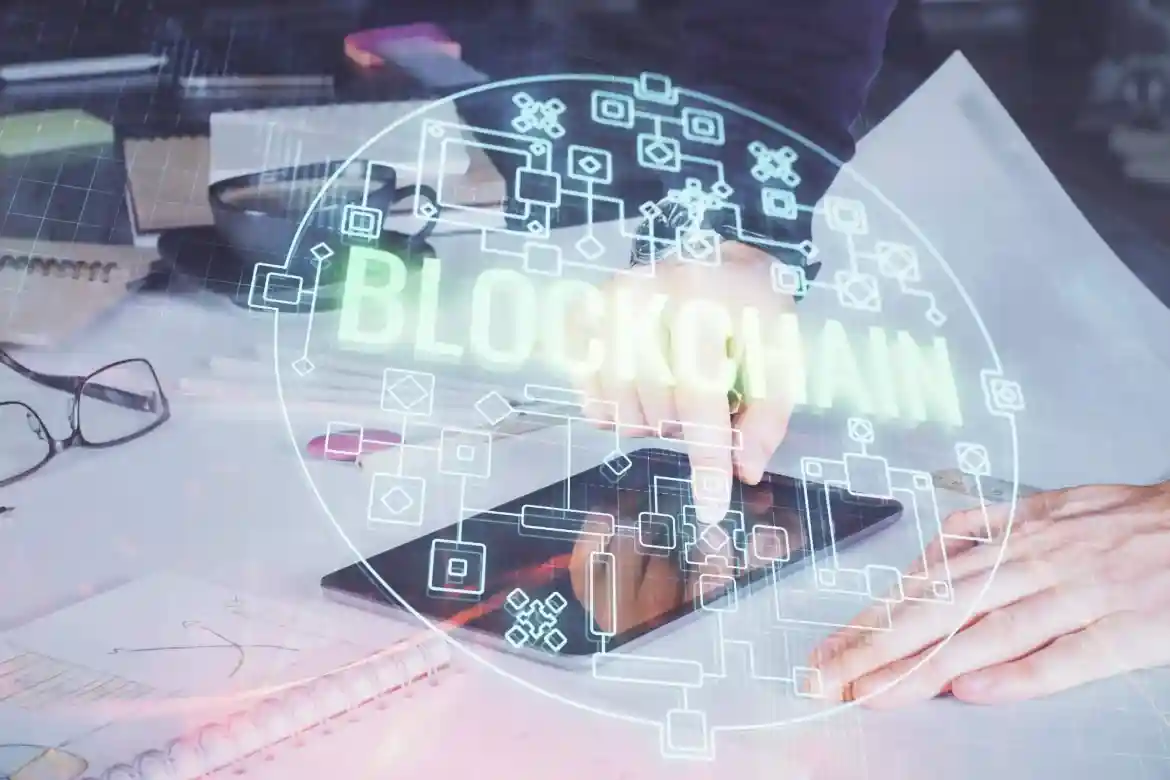How Blockchain Is Changing the Banking System
Date: 21 March 2022

Blockchain has been a buzzword for the past few years and it’s really no surprise given how it’s changing the dynamic of many industries. Blockchain technology is expected to revolutionise the way we do business, not only in the banking industry but across sectors such as healthcare, government, retail and more.
In essence, a blockchain is a distributed ledger of records or public databases that are openly shared among disparate users and that creates an unchangeable record of their transactions. These transactions are cryptographically secured to ensure they remain tamper-proof.
Blockchain has great potential to overhaul the way the banking industry works and make it more transparent, efficient, secure and cost-effective. According to this blockchain developer salary research, the modern blockchain market is currently valued at $20 billion, and the demand for developers is increasing by 500%+ year to year.
Here are several ways blockchain technology will change the future of the banking system:
1. By Expediting International Transfers
Blockchain has the potential to make international transfers and monetary transactions faster and more cost-effective, as well as more transparent and secure. Currently, when transferring money from one country to another, transactions can take multiple days and involve a variety of third parties.
These parties each take their cut from the transaction. This means that by the time the money reaches its destination, the sender may have lost a significant amount of money. For both international businesses and consumers, blockchain technology enables faster and simpler peer-to-peer transactions that are more effective for both international businesses and consumers, for example through a Bitcoin wallet.
Blockchain is essentially a digital ledger that provides an unalterable record of transactions between two parties. Computers on a network validate each transaction before it’s added to the blockchain and cannot be changed or tampered with once completed.
2. By Increasing Security & Reducing Fraud
Blockchain can also help to eliminate fraud as it creates a clear audit trail. It also has multiple redundancies, therefore it is almost impossible to alter any information once it has been uploaded on this network.
The Blockchain network is maintained by thousands of computers, meaning there is no central point where hackers could attack the network and change data without leaving evidence behind. This aspect of blockchain makes it extremely relevant in the current global scenario of rampant cyber crime and widespread ransomware attacks that can compromise sensitive information and lead to losses of hundreds of thousands of dollars for the victims.
Having said that, you should still continue to protect your Windows and use VPN for added security. You should also refer to our Ransomware Checklist to ensure that you’re prepared with the right cybersecurity strategy in case you do end up becoming a victim of a cyber-attack.
3. By Reducing Costs for Banks and Customers
Blockchain has the capability to significantly reduce the cost of banking services and improve the quality of products.
Today, financial institutions are looking for ways to implement this technology in order to solve the problems of speed and cost. Some tasks can be automated when using blockchain. The blockchain is a distributed databrase that is secure, transparent, and can be easily implemented. These characteristics make it possible to automate some processes related to banking activities (for example, payments or issuing loans).
4. By Reducing Human Error
Various reports show that human errors in accounting, record-keeping and reconciliation are one of the leading causes of fraud. In terms of security operations as well, it is often an innocent human error or simple negligence that has escalated into massive cyber security issues.
Blockchain has an automated method of recording transactions that cannot be altered later. By using this technology, many manual processes will be phased out, thereby reducing human errors, improving efficiency and mitigating the impact of cyber threats.
5. By Making Lending Easier for Lenders and Borrowers
Lending is an integral part of banking. It is essential for both corporate and retail customers to maintain their liquidity or the ability to pay for their cash requirements. In addition to this, lending is also one of the revenue drivers for banks. This means that it is important for banks to do this right.
With blockchain technology, lending will gradually become easier as there will be instant settlement of transactions. This can help in avoiding problems such as double spending and defaulting. Blockchain can also reduce the time taken to open a bank account from days to minutes.
6. By Potentially Eliminating Middlemen & Commissions
Blockchain allows people to trade directly with each other, using a record of transactions kept in a shared ledger. This eliminates the need for middlemen, like stock exchanges and banks.
If banks are cut out of the loop, it’s inevitable that their share prices could suffer. But it’s not so clear-cut for middlemen like stock exchanges, which provide essential services for trading shares.
They may still have a role to play in providing liquidity and security to blockchain-based financial systems, but the days of cashing in on broker fees are likely over soon with the advent of blockchain technology.
7. Through Multiple Use Cases
Blockchain can be used for anything from voting to business contracts. It is a recording system that has no centralized authority, which makes it practically impossible to hack into and tamper with.
The information kept in a blockchain system is shared across a vast network of computers, and the data cannot be altered unless the majority of computers in the network agree that it should be changed.
Bottom Line
Blockchain technology is slowly but surely making its way to the banking and financial services industry. It is also capable of transforming the overall security of the banking sector. From remittances to securities trading to cross-border payments, blockchain technology is poised to make a huge impact on the way international transactions are carried out and digital assets are kept secure.
If you are considering implementing a blockchain banking solution, it is wise to consult with experienced professionals who can guide you through the complexities of this technology. Many parties could offer relevant insights: financial technology consultants, banking industry professionals, blockchain developers, and particularly companies specialized in blockchain solutions. You might want to consider consulting with Webisoft.com, a company experienced in developing blockchain solutions. Their knowledgeable team can provide guidance tailored to your specific needs, helping you navigate the intricacies of blockchain implementation in the banking sector.




